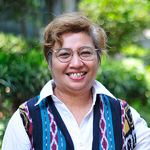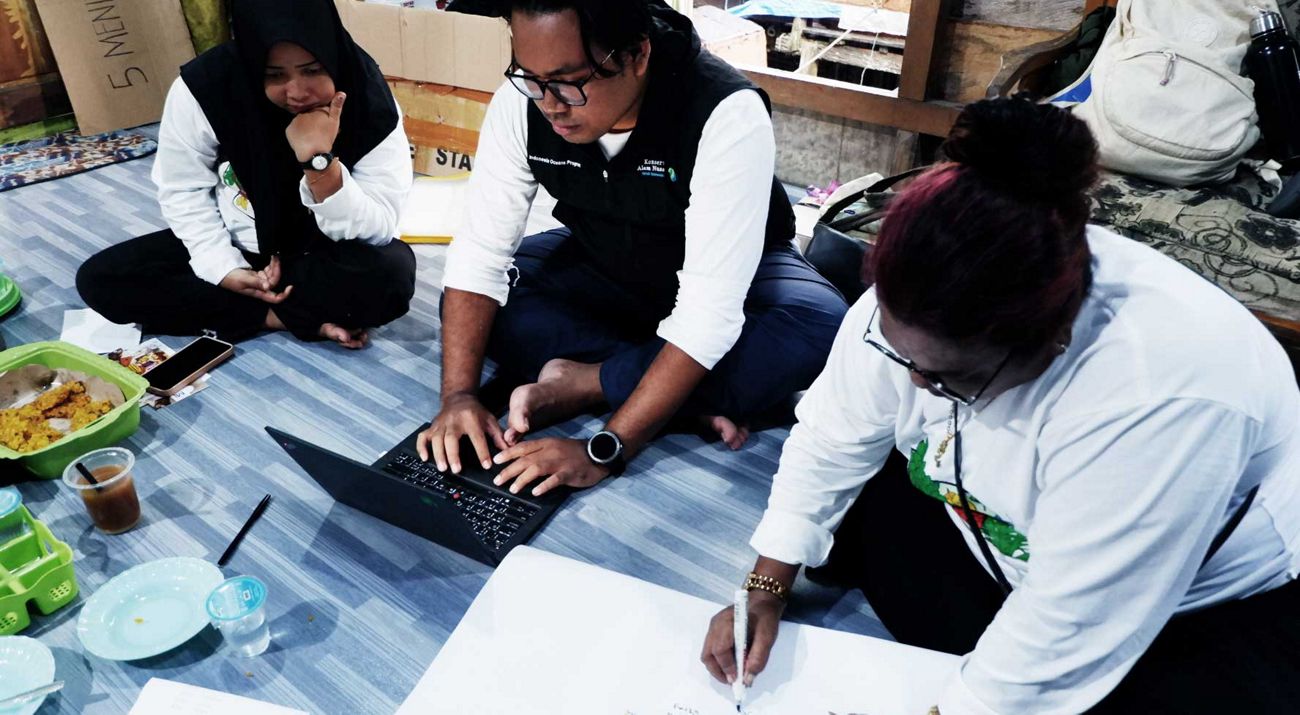
This article is part of the journey of the author (Sally Kailola) and the YKAN Ocean Program team to Ogan Komering Ilir Regency, South Sumatra, to participate in the Women's Group Training - Journey to Ogan Komering Ilir, South Sumatra, at the end of September 2025.
Early in the morning, I heard footsteps on the wooden floor of the stilt house where Ribka Harefa and I were staying. The fan that had kept us asleep the night before had stopped, as the village electricity had also been cut off at exactly 6 a.m. After the shower, Ida's mother served us breakfast. Fried rice and hot tea would refresh us and give us the strength to start our morning activities.
Ribka and Ida prepared our training equipment and the lunch we would bring. I noticed a generator and some baking tools among the supplies. Ribka told me that the generator would be given to the Maju Jaya group because they face power outages from morning to evening. Therefore, they only work on their product, shrimp crisp, at night. Product quantities are limited if they can only work at night. YKAN is providing this generator to help their business.
Read: Punan Batu Map Wins Third Favorite Place at the GIS Conference
We met up with three other colleagues at the port in Pantai Jaya Village and began our journey down the river to Simpang Tiga Jaya Village. Ida, our local facilitator, whispered through the wind that after the river, we would be crossing the sea to reach our destination village. Wow, I was so excited, as this was a new experience, navigating both the river and the sea in one trip.
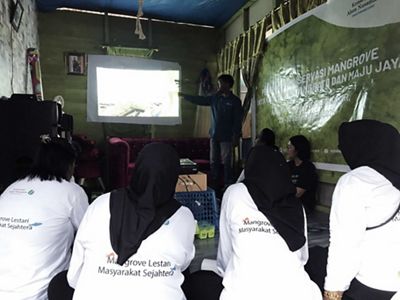
After crossing the sea, we re-entered the river leading to the village and were greeted by rows of dense mangrove forests. Upon arrival, we walked past shops and stilt houses along the riverbank, heading to the home of one of the group members, where we would be doing our activities. While waiting for the generator to be installed, we greeted each other and got to know the six mothers who had gathered to take part in this training.
Mangrove Conservation Training & Strengthening Outreach Skills of Maju Jaya Group.
At around 10 a.m., Sadik officially opened the training. The training session began with an introduction to mangroves and the species found in the village and in the OKI area. Syidik, who facilitated the session, provided images of 22 mangrove species found in OKI to share with the participants. The discussion gets excited as the group members are introduced to the various types of mangroves in their local languages. After that, Sadik explained an environmentally friendly type of shrimp farming, called silvofishery.
Silvofishery is a shrimp farming system that integrates fish/shrimp farming with mangrove forest rehabilitation and conservation, creating a sustainable ecosystem that mutually benefits the environment and the economy of coastal communities. This type of shrimp farming is being socialized to groups because YKAN has introduced environmentally friendly shrimp farming mechanisms through the SECURE (Shrimp-Carbon Aquaculture) program on the coast of OKI and has several examples of shrimp farming managed jointly with the community.
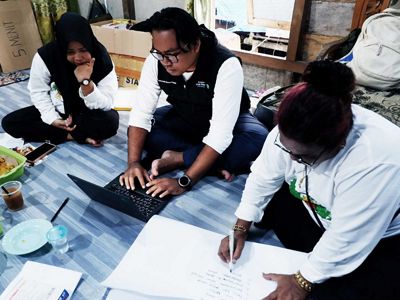
After a lunch break and prayer, we continued with the second training session. This session, facilitated by me, aimed to guide the groups in developing stories related to their processed products, which are also associated with mangrove protection efforts.
Moreover, the shrimp used in their products are sourced from farms or purchased from fishermen who catch them around the mangroves. After the theory was presented, participants were divided into three groups and assisted by three other YKAN colleagues in developing their stories. Nugrah Hadi Sukesna, a YKAN staff member based in Bengkalis, is currently assisting with mangrove monitoring in OKI, has also joined the group discussion. Members of the Maju Jaya group will share their stories, which YKAN colleagues will help put into a PowerPoint presentation.
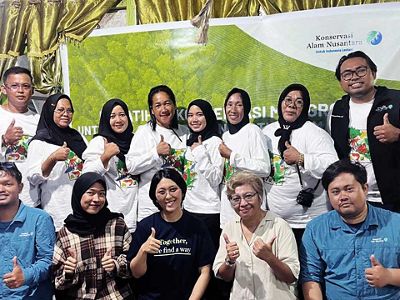
After completing their stories, each group presented their stories to the class. The presentations were judged on the material and the presenters. I was thrilled to see the enthusiasm of all the group members. The story was very engaging, and the presentation was well done. I was impressed by their commitment to learning, as this was their first training on storyboarding and presentation skills.
Before we knew it, it was already afternoon. Heavy rain reminded us to return to the village. The journey along the coast was a challenge. The strong waves and winds along the way made me even more amazed by the lives of coastal communities. Being strong and brave in handling challenges is one of the life philosophies I got from today's journey.


